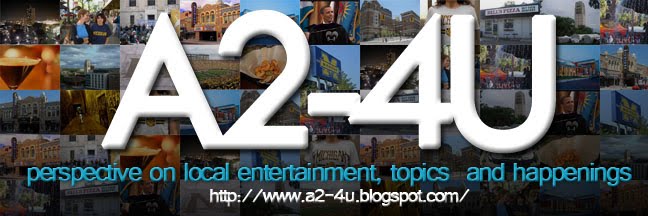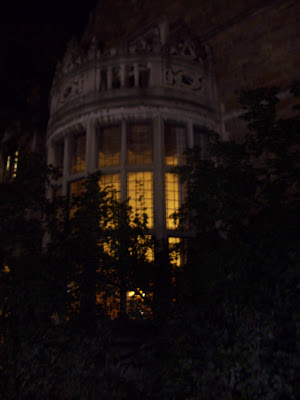“It’s a gallery of ideas,” says Gloria Pritschet, co-founder of Gallery Project. “[We are] not just looking for technique but what the artist is saying.”
Courageous and thought provoking subject matters drive Gallery Project's creative content. It is unique in that themes rather than particular groups of artists drive displays.
Members of the collective that runs Gallery Project seek out creations of craftspeople traditionally deemed ‘artists’ as well as creations of folks that are not. They seek artists from a variety of imaginative avenues and networks.
Various geographical regions, professionals in specialized fields, and educational backgrounds influence artist selection of any given exhibit. “[We’re looking for] a big, broad demographic range,” Pritschet says. Most other galleries don’t span as many different inspirational avenues.
 |
| Walking Through Hades by Carla Butwin Photograph by Lea Bult |
Various geographical regions, professionals in specialized fields, and educational backgrounds influence artist selection of any given exhibit. “[We’re looking for] a big, broad demographic range,” Pritschet says. Most other galleries don’t span as many different inspirational avenues.
Scientists, architects, and other professionals often partake in creative natured projects. One scientist interested in animal behavior shot magnificent videos featured in an exhibit. The gallery seeks different voices from different people with different ideas and modes of expression. Pritschet will contact an interesting person she reads about in the New York Times, for example, and inquire if that individual wishes to contribute to a display.
Gallery Project’s governing collective also announces each show in advance to the public with the intent of receiving unsolicited submissions in support of emerging artists.
A unique pattern of exhibitions presents itself at Gallery Project. “Every six weeks…is like a different world in here,” Pritschet proclaims. Exhibits traverse a wider range of subjects and schools of thought than average. Recurring visitors quickly catch on.
Most recently, The Politics of Fear exhibit resides at Gallery Project through October 17th. “The politicization of fear is a familiar historical means to power and control achieved through the threat of danger and the promise of protection,” explains the gallery’s exhibit summary. Politicians, business officials, and endless other perceived leaders frequently employ such tactics. Numerous covert agendas fuel exaggerations of certain threats. The oil painting, Walking Through Hades, by Carla Butwin, is one exhibition piece that contemplates this topic.
Donations have been the primary financial support of Gallery Project since its insemination. While a large donor fully supported its first five years of existence, the gallery’s funding is now dependent on several individual donations.
Both artists and the gallery, itself, profit from art sales, a major source of financial support.
Several fundraising events geared around art lovers and exhibits regularly occur at the gallery. “[We] try to keep fundraising separate from [but related to] art collaborators and themes,” says Pritschet.
Gallery Project’s next exhibit, which commences October 20th and features a reception on November 22nd, poses the question, “What’s So Funny?”
Gallery Project is located at 215 S. Fourth Avenue,
Ann Arbor, MI.












